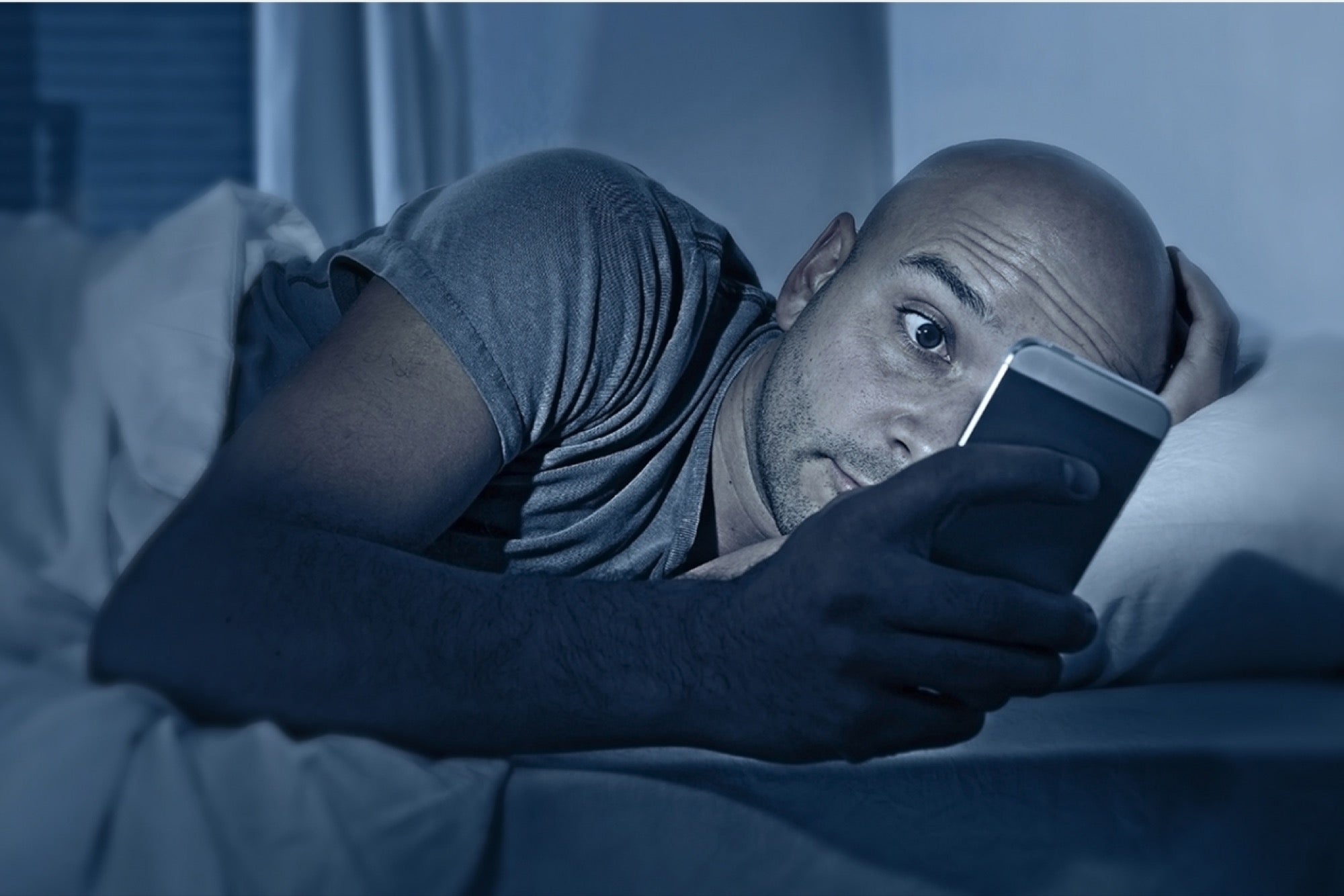Why Aren't Entrepreneurs Getting Enough Sleep? Skip sleep often enough, and you'll drive both yourself and your business into the ground.
By Anna Johansson Edited by Dan Bova
Opinions expressed by Entrepreneur contributors are their own.

It's no secret that entrepreneurs make lots of sacrifices for their businesses. They often de-prioritize personal relationships with friends and family members, forgo long-term goals and skip both meals and sleep to build their businesses.
Related: 11 Unexpected Things That Are Stealing Your Sleep
Unfortunately, though, sleep deprivation is rampant among entrepreneurs as a result -- and it's sabotaging their chances of becoming successful.
Approximately half of all CEOs, according to one survey, get less than six hours of sleep every night, and -- at least anecdotally -- founders during the early stages of a startup have it even worse.
In 2011, Twitter founder and CEO Jack Dorsey was reportedly getting only four to six hours of sleep every night. And Herb Kelleher, co-founder of Southwest Airlines, was sleeping only four hours a night when he was in charge.
Even historical figures known for their enterprises are reported to have gotten little sleep: Thomas Edison got three to four hours a night, while Benjamin Franklin slept a mere five hours.
These were, and are, all successful people, so you might be tempted to emulate their habits.
Bad idea. Sleep deprivation is a problem, and it's going to do you more harm than good in the long run.
How sleep deprivation affects you.
According to Snore Nation -- yes, that's actually its name -- the average adult needs at least seven hours of sleep every night, preferably seven to nine. Backsliding a night or two won't kill you, but over time, all those missing hours can take a serious toll on your health -- and your productivity.
According to the Centers for Disease Control, more than one-third of professionals aren't getting the recommended amount of sleep, and as a result, they're starting to experience some serious health repercussions, including "obesity, diabetes, high blood pressure, heart disease, stroke and frequent mental distress."
For some entrepreneurs, those physical health effects may seem temporary, and worth the opportunity to have those few extra waking hours. After all, you can sleep once your company is successful, right?
Related: Arianna Huffington: 'Sleep Deprivation Is the New Smoking'
But you may never get to that point. A data trove from Harvard Medical School's Division of Sleep Medicine confirms that sleep deprivation also has a serious negative impact on your cognitive abilities, including concentration, working memory, mathematical capacity, logical reasoning, perception and judgment.
That hour of extra sleep you need will enable you to get more done the next day, and help you make better business decisions. The message here? Skip sleep often enough, and you'll drive both yourself and your business into the ground.
Why entrepreneurs are missing the mark.
If sleep is so important, why are so many entrepreneurs and professionals skipping it? Following are some of the top reasons, and if you can avoid them, you'll forge your way to a healthier sleep pattern:
- Getting more done. Sleep requires seven hours out of your 24-hour day. So, if you sleep for five hours, you may reason, that's two extra hours a day -- or 14 extra hours a week --that you can use to get things done. This is a bad excuse, however, because even though you'll be awake a longer period of time, the negative effects on your performance will cancel out any productivity gains you might incidentally see.
- Not prioritizing sleep. Most entrepreneurs see work as the priority; in that context, personal life becomes a secondary priority, and with sleep, something that fills in the cracks in between. Naturally, with this perspective, sleep gets short-changed. There's always another meeting, another assignment or another task.
- Staying up checking emails. Most of us check our emails throughout the day, looking at our phones more than 150 times. Emails therefore end up taking a backseat to more important issues; that's why so many entrepreneurs stay up late trying to catch up on their communication.
- Failing to deal with stress. High levels of stress can also interfere with your ability to sleep -- and as an entrepreneur and leader, your life has plenty of stress to go around. If you don't deal with that stress properly -- via exercise, relaxation and mental processing -- it's going to prevent you from achieving successful sleep patterns.
- Drinking too much caffeine. We drink an average of 2.1 cups of coffee per day, with a steady increase as we age. That caffeine may help you stay more alert after a night of minimal sleep, but it will also interfere with your ability to sleep the next night, resulting in a perpetuating cycle.
The takeaway here is, don't let sleep deprivation ruin your chances of building a successful business. Your first step is to stop making excuses and make a full night's rest one of your top priorities.
Related: Sleep Deprivation Is Killing You and Your Career
So, schedule sleep as you would any meeting or other significant business event. Also, take care of yourself, with a proper diet, exercise, limited caffeine and limited digital interactions before bed. Within a week, you'll notice a huge difference in your performance -- and you'll stave off the long-term health risks associated with missing that sleep.











